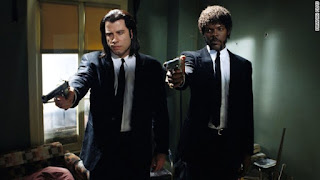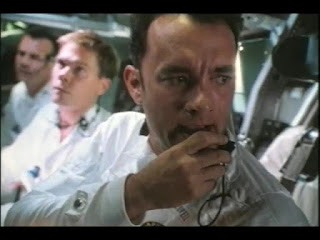On Saturday, 11 June, at 6:31pm, the Phnom Penh Film Club sets aside its film-studies notebook for an evening of unadulterated criminal mayhem, Guy Ritchie’s *Snatch*, starring Jason Statham, Stephen Graham, Vinnie Jones, Benicio Del Toro, Dennis Farina, Alan Ford, Lenny James, Robbie Gee, Ade, Rade Sherbedgia and Brad Pitt.
Was 2000 the single greatest year in the history of motion pictures? Well ... okay, look, 1974 is going to be pretty tough to beat, ever. If you need convincing, consider that The Godfather II, The Conversation, Blazing Saddles, A Woman Under the Influence, Celine and Julie Go Boating, Murder on the Orient Express, Alice Doesn’t Live Here Anymore, The Towering Inferno, and Chinatown were all in wide-release in theaters AT THE SAME TIME, and then tell me there’s ever been another year quite like ‘74 when it comes to motion pictures. But with its own dizzying assortment of superlative pictures, y2k certainly makes for a fun runner-up, with Crouching Tiger, Almost Famous, O Brother Where Art Thou, Memento, Cast Away, and Snatch.
Chronologically the second of the three Guy Ritchie / Matthew Vaughn fractured-narrative gangster movies (book-ended by the earthier and less polished Lock, Stock, and Two Smoking Barrels, on one side, and the darker, somewhat ponderous L4yer C4ke, on the other), Snatch is unquestionably the pick of the litter. First and foremost it is the only one of the three that steadfastly refuses to take itself seriously—indeed is most often found on streaming service listings under ‘comedy’. But it’s also a much more professionally complete and tonally consistent work than its companion pieces, with none of Lock Stock’s blind-alley monologues or L4yer C4ke’s inexplicable commitment to showing us a truly hardened antihero as our supposed vessel. And the plot complexity just simply and objectively could, not, be, more, perfect.
In the A-story, Jason Statham and Stephen Graham are east-end London ne’er-do-wells (“Turkish” and “Tommy,” respectively) who split their time between managing a slot-machine parlor and a stable of illegal bare-knuckles boxers. When Turkish dispatches Tommy and their top-card fighter Gorgeous George (Adam Fogerty) to a gypsy (“pikey”) campsite to acquire a new camper/caravan from which to operate their business, the pikeys double-cross the pair, with the clan’s leader Mickey (Pitt) threatening violence if they don’t immediately take their leave. Whereupon George challenges Mickey to a fight, and is of course knocked out cold--and pretty seriously injured--by the wiry and indefatigable gypsy.
So far the boys are out a fistful of money, an out-of-commission fighter, and an afternoon. Pretty humdrum stuff for this pair, surely. Trouble is, Turkish has already booked George for a bout with one of the many fighters under the management of a certain Brick Top (Alan Ford), himself far shadier and more menacing than Turkish or Tommy could ever hope or want to be. With their own fighter suddenly off the card, our heroes must approach the unapproachable Brick Top and hope they survive delivering the news—until, that is, they hit on idea of hiring the pikey to take George’s place (and George’s fourth-round dive), instead. I mean, gosh—what could possibly go wrong?
Meanwhile, in another part of east-end London, pawn-shop owners Sol and Vincent (Lenny James and Robbie Gee) have been hired by Boris the Blade (Rade Sherbedgia) to knock-off an illegal bookie’s office and steal a briefcase being carried by compulsive gambler Frankie Four-Fingers (Benicio Del Torro) because it contains an eighty-four carat diamond, stolen the previous week in Amsterdam. The two pawn brokers enlist the aide of getaway driver Tyrone (Ade), who turns out to be so immensely oafish and overweight that it takes him whole minutes to get into and out of the car, and who, as an added bonus, can’t drive more than a few feet without slamming on the brakes or hitting something, either.
As one might expect by this time in the film (we’ve already seen these three characters behaving in ways that are far from competent), much goes awry at the bookie’s—though it’ll be a while before they learn the true nature of their problems. And let’s just say that bad driving is the least of it.
This is to say nothing of the myriad cast of ancillary and thrillingly eclectic characters in hot pursuit of either the diamond, the pikey, Turkish and Tommy, the pawn-shop guys, or some combination thereof. There is Avi (Dennis Farina), who’d hired Frankie to steal the diamond and bring it to New York; there is Boris the Blade, whose failure to obtain the diamond from the hired pawn brokers lands him in hot water with his own contacts back in Amsterdam; and then there is Bullet-Tooth Tony (Vinnie Jones), hired by Avi at the behest of Doug The Head (Mike Reid) to locate Frankie when Doug himself cannot.
All of it adds up to a veritable theme-park ride of de-saturated, character-driven chaos. With its breathless pacing, near-slapstick photographic devices (including the use of literal title cards for introducing the dramatis personae at the film’s outset), and the sumptuously un-serious musical stings clobbering us over the head with how ridiculous everyone’s being, Snatch pushes hard on the envelope of the “MTV” style of film conceit that made other, lesser films of its era (e.g. The Fifth Element) so palpably unbearable to sit through.
It would be astonishing enough that director Guy Ritchie and script supervisor Matthew Vaughn manage to spin their unwieldy and polymorphous tale into something credible and understandable, and thence manage to bring the complex facets of the story together at just the right moment with a hilariously improbable but instantly believable coincidence. But they also manage the far more subtle and refined challenge of coaxing us into a trance of comedic sympathy for all these should-be villains along the way. By the time of that momentous coincidence, not a single figure in the tangled fabric of our story is regarded with anything other than a downright acrobatic suspension of disbelief, and almost all of them with unqualified goodwill.
The ‘comedy’ classification can and does evoke some thoughtful head-scratches from audience members who might not associate the word with body counts, but make no mistake: The humor in this script is deep, abiding, and ubiquitous. For starters there is Pitt’s indecipherable accent (so indecipherable that the subtitle track reserved for his lines eventually gives up and places strings of question marks at the bottom of the screen). Then we have Tyrone’s all but willful inability to do the only job he’s been hired for, paired with the recurring (and incidentally mostly un-scripted) antics of the gypsies’ dog, who crops up in each of the many different storylines for at least as long as it will take to bite one of the actors in real life. At all events scarcely a full minute of screen time elapses without something from memorably funny to wheeze-inducing to take away with us.
In lesser hands all of this laugh-out-loud funny would represent its own kind of trap, of course—since there comes a time in the lives of all these people when, if you’ll pardon the pun, the gloves must come off. These are serious problems into which these folks have gotten themselves, and the serious business of getting out again must thus be taken seriously. It’s no secret that most filmmakers who try such a maneuver fail, either because the antecedent comedy is rendered unfunny by the eventually serious subject matter, or for just the opposite reason: because the comedy works so well that the getting-serious part is impossible to swallow.
Ritchie and Vaughn play both sections of the orchestra simultaneously with this picture, and with such high command of form that each facet of the recipe serves only to accentuate the other. The end result is one of the great gifts to the modern moviegoer, period. In Snatch they have made a movie that is at once thigh-slappingly funny, and a surprise to find mixed-in with the comedies on your favourite streaming site. They have made in Snatch a movie that it as once fabulously complicated in its narrative, and instantly accessible. They have made, in Snatch, the eighty-four carat diamond of heist movies. If you have not seen it, you must see it this weekend.
A short coda just to drive the point that last few hundred meters home. In 2009, and with no idea what I was letting myself in for, I decided on a larf that it might be fun to blog an annotated countdown of my own choices for the hundred greatest movies ever made. Chronicled in countdown-style, the exercise quickly swelled from a four-part series to a sixteen-part series, and would end up taking an entire summer and much of my productive energy for the year in question. I don’t regret a second of the project of course, and scarcely a week goes by without me thinking about those columns. But here’s the thing: Snatch was number six.
If that seems anticlimactic, it’s only because you haven’t been walking around for thirteen years, now, composing various apologies to Guy Ritchie and company for having somehow excluded this picture from my overall top five. That’s how effortlessly perfect this film is, folks: I feel actual guilt—real, out-of-nowhere remorse—that I ever dared to call it only the sixth-best movie ever made.
I hope everyone will plan to join us this Saturday, 11 June at 6:31pm, for what is, at worst, the sixth-best movie ever made. I can’t guarantee that you’ll agree with such a lofty ranking, but I can guarantee that by the time the end-titles are rolling up the screen, you will have had a great enough evening that the ranking ceased to matter either way.
Click Here to Read More...

















